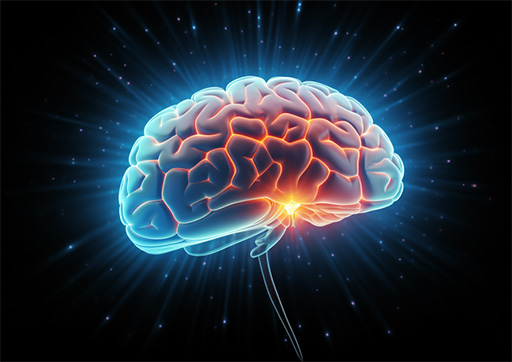Stress Effects On The Body And How BioScan Can Help

One of the keys to properly dealing with stress is understanding how it appears and affects the body. If you can adequately identify the visible signs of stress, you can assess your patients more quickly and accurately. The BioScan system goes a long way towards clearly identifying stress levels and causes. It’s an invaluable tool for practitioners who want to provide the best possible service to their patients.
By correctly identifying and addressing elevated stress levels, you can help prevent many potentially harmful conditions.
Let’s look at some of the different ways that stress affects the mind and body.
-
Stress Can Affect Your Weight
A patient consistently dealing with stress is more likely to make poor lifestyle choices that lead to weight gain. Obesity is a serious health concern because it increases type 2 diabetes, stroke, heart issues, blood pressure, gallbladder problems, and general mortality. Identifying extreme stress can help put your patient back on track toward their weight loss goals.
There are several ways that stress contributes to weight gain and obesity. The first is by leading to unhealthy eating choices. The cycle of stress eating is widespread. Patients under stress are more likely to reach for that bag of cookies or chips than a fresh kale salad. Junk food temporarily reduces cortisol levels in the bloodstream and creates a mild break from elevated stress levels. Unfortunately, the effect soon wears off, and the stress returns.
Overcoming cravings is a difficult task. The brain understands that simple carbohydrates lead to insulin which then leads to a serotonin release. The body is working against itself, and the only way to overcome these cravings is through sheer willpower. Patients need to remind themselves that it is only a stress craving and then distract themselves with exercise.
Another way that stress can encourage weight gain is by removing your motivation to exercise. Adrenal fatigue and low energy levels are prevalent symptoms of ongoing stress. People under a lot of stress often wake up multiple times during the night, which can reduce daily energy levels even further. With less energy at your disposal, it feels a lot easier to sit on the couch than to visit the gym.
The effect of stress on energy levels is another hurdle that requires determination to overcome. What’s most interesting is that exercise is considered an effective tool for managing stress. Activity leads to the production of endorphins. Endorphins help manage stress and make it easier to sleep at night.

-
Stress Can Affect Fertility
If you have a patient actively trying to conceive, you can rest assured they are dealing with stress effects on the body. Unfortunately, that stress can eventually become a severe problem.
It’s believed that fertility problems may result from hormonal changes that occur during prolonged periods of stress. Cortisol isn’t the only hormone that fluctuates during times of stress. It can alter other hormone levels, such as prolactin and growth hormones. In severe cases, these hormonal changes can result in harmful health conditions.
In women, imbalanced hormone levels tend to affect the menstrual cycle. It often leads to irregular periods that sometimes stop for weeks or months at a time. Such dramatic changes to the menstrual cycle undoubtedly affect conception chances. Stress hormones can also have an impact on ovulatory cycles. It can completely halt the ovulatory cycle and rapidly fire it back up when the stress is relieved.
-
Stress Can Affect Appearance
Weight gain is only one of the stress effects on the body that can impact appearance. Stress can affect the skin, hair, and nails in numerous ways. It can also lead to developing some detrimental habits that ultimately affect our appearance. Keeping an eye out for visual signs will make it easier to identify patients under significant stress. The faster you can identify the problem, the less time the cortisol will have to wreak havoc on the body.
In times of stress, the body focuses on survival. Vitamins and minerals redirect to the most crucial survival processes instead of our hair, skin, and nails. It also means the body focuses less on producing elastin and collagen. It can result in sagging, wrinkles, and fine lines. Acne, rosacea, and eczema are all skin conditions that elevated stress levels can cause.
Stress levels heavily influence hair growth cycles. New hair will grow back, but the problem may persist. Telogen hairs account for roughly 15 percent of the hair on a person’s scalp. Some patients dealing with extreme stress actively pull on their hair and exasperate the problem.
Clenching or grinding teeth is another common symptom of prolonged stress. This unfortunate habit can lead to multiple problems, including headaches, neck aches, and severely damaged teeth. If the pattern persists for years, it can eventually affect the tongue and other tissue in the mouth.
Damaged nails reduce vitamin and mineral allowance during times of stress. Coping habits also damage them, like biting or picking at the nails. Not only does stress limit the minerals available to our nails, but it makes it more difficult for our bodies to absorb these minerals in the first place.


-
Stress Can Affect The Immune System
Researchers have been studying the link between stress and the immune system since the 1980s. Several studies from that time indicated a connection between animals with high stress levels and the risk of infection. The studies eventually graduated to human subjects, and the link remained.
One study found that students’ immunity levels decreased each year dramatically during several days of an exam. Stressed students over the exam had fewer lymphocytes available to fight infection. They produced less gamma interferon, and their T-cells were nearly dormant.
Additional studies would eventually reveal even more discerning links between stress and the immune system. For example, older patients are far more likely to suffer severe immune changes caused by stress. The effect of stress on the immune system could be cumulative over the years resulting in more severe damage as we age.
Overall, stress reduces the efficiency of the immune system in all organs. Patients who suffer from chronic stress are far more likely to develop an unwanted skin condition. It can also cause preexisting conditions like shingles to reactivate.
Increased stress also causes wounds to heal more slowly. A weakened immune system and high cortisol levels in the blood cause a dramatic decrease in cytokine delivery. Wounds and injuries may heal at a much slower rate.
-
Stress Can Affect The Mind

When a stress-inducing event takes place, the amygdala and hypothalamus begin communication. The amygdala is generally responsible for emotional responses, including fear. The hypothalamus is responsible for controlling several vital systems in the body and for maintaining homeostasis. The signals sent from the amygdala create the “fight or flight” response that is associated with stress. The body begins producing large amounts of cortisol.
During prolonged periods of stress, the body produces far more cortisol than it needs. This overabundance of cortisol can have negative effects on the brain. One way in which cortisol affects the brain is by preventing transmissions through specific synapses.
Chronic stress can eventually cause the brain to shrink in some areas and grow more prominent in others. The prefrontal cortex tends to decrease in size while the amygdala grows larger. This has the unfortunate consequence of making the brain more sensitive to stressful situations. Over time, chronic stress increases the risk of further stress and traps patients in a harmful cycle.
BioScan Can Help You Address Stress
Identifying the cause of stress in your patients should be a top priority. We’ve seen where it can lead to numerous harmful conditions and increase the general risk for mortality. Creating a practical and comprehensive stress management protocol is crucial. Luckily, it’s easier than ever, thanks to BioScanSRT (Stress Reduction Technique).
The BioScan SRT takes a dual approach to your patient’s stressful condition. It can help identify the source of stress, referred to as stressors. It can also help adjust stress effects on the body. Over time, the benefits of the SRT system can significantly reduce the impact of stress and help patients return to normal, healthy living conditions.
The SRT system is safe for children, adults, and seniors of all ages. It doesn’t require any invasive procedures, injections, or medications. It is painless, worked for thousands of patients across the globe, and is one of the safest and most reliable tools a practitioner can have for combating stress.
The device operates according to principles of bio-resonance, which have been in use since the early 1970s. Every substance has a unique energy frequency that can be measured and reproduced. The BioScan SRT has thousands of different frequencies stored in its memory. You can add more frequencies to the system if you require them.
With the device attached, you measure the patient’s stress response to the various frequencies. With sufficient testing, you can identify potential stressors contributing to your patients’ chronic stress levels. You can then work to adjust how the body reacts to these stressors.
